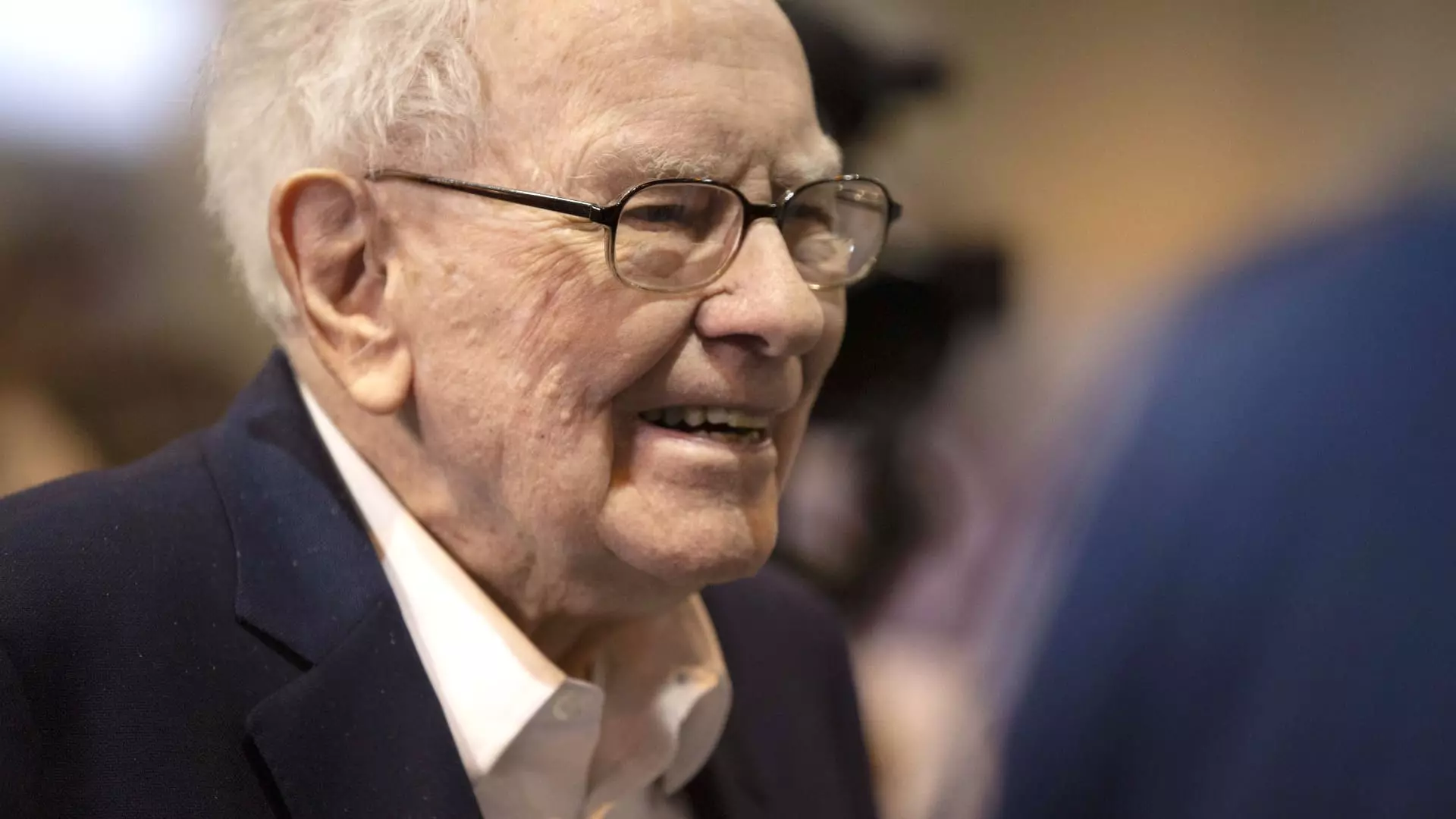Warren Buffett, the venerable figure of American investing and CEO of Berkshire Hathaway, has once again sparked curiosity in the financial community with his recent strategic moves. As the world observes his astonishing $334 billion cash reserve and significant stock sales, many questions arise concerning his seemingly defensive posture while markets flourish. This article delves into the implications of Buffett’s decisions, the potential reasoning behind them, and the broader context for investors.
As long-time shareholders of Berkshire Hathaway scrutinize Buffett’s latest quarterly maneuvers, the narrative has shifted toward a cash-heavy strategy. The revelation that Buffett sold over $134 billion in equities during 2024 is perplexing, especially for an investor renowned for his stock-picking wisdom. Given recent market dynamics, with the S&P 500 climbing more than 20% consecutively for two years, one might expect an aggressive deployment of capital rather than a conservative, cash-laden approach.
Buffett’s own acknowledgment in the annual letter that the majority of Berkshire’s wealth remains invested in equities, coupled with an assurance that this preference won’t waver, makes the situation even more paradoxical. The investor’s legendary track record encourages an optimism that now seems at odds with an alarming liquidity buildup. Amid profitable market conditions, Buffett’s reluctance to expand equity holdings raises eyebrows and stirs debate about his long-term vision.
Interpretation of Inflationary Pressure and Valuations
Buffett’s reluctance to engage with the stock market during a bull run can be interpreted in various ways. One plausible explanation is his apprehension about prevailing market valuations. In his letter, he suggests that a scarcity of attractive investment options is influencing his choices. The crowded and expensive market environment may discourage aggressive acquisition strategies, prompting a more cautious approach instead.
Furthermore, an undercurrent of economic uncertainty remains, exacerbated by recent fluctuations in monetary policy and geopolitical tensions. These uncertainties seem to compel the oracle of Omaha to favor liquid assets, perhaps anticipating a market correction that could offer better entry points in the future. A 334 billion cash position also allows Berkshire to weather economic storms, a strategy rooted firmly in Buffett’s long-standing principle of financial safety.
Another critical dimension to Buffett’s strategy involves consolidating his legacy for his designated successor, Greg Abel. Though Buffett has always championed his investment principles, his strategic decisions may now reflect a deliberate effort to prepare Abel for the reins of Berkshire. Many analysts posit that the current liquidity could be strategically positioned for future investments under Abel’s direction, allowing for a fresh perspective when the economic landscape shifts.
Buffett’s nod to Abel’s investment acumen in recent correspondence is noteworthy. By publicly extolling Abel’s capabilities, Buffett may be signaling to stakeholders that while he may be more conservative in the present, the ship remains on course with a capable captain at the helm. This move may also ease anxieties among investors regarding the transition of power and the direction Berkshire might take once Buffett steps down.
While Buffett’s rationale provides some comfort, there exists a growing disquiet among shareholders regarding the lack of actionable strategies. Buffett’s investment choices, particularly in light of his consistent stock sales, have raised eyebrows. Some stakeholders are becoming impatient, eager for reassurances that Berkshire remains committed to leveraging its capital effectively, especially since Buffett’s recent sell-offs include significant reductions in equity holdings like Apple and Bank of America.
Furthermore, the decision to halt share buybacks during this robust market, despite reports of increased operating earnings, deepens concerns. Shareholders looking for active management may feel alienated as they watch other firms capitalize on rising valuations. Patience is a virtue in investing, yet the indifference exhibited by Buffett could potentially backfire if perceptions of Berkshire as a stagnant entity gain traction.
Buffett’s cautious approach amidst flourishing markets is a complex strategy that reflects both current economic anxieties and future planning for his successor. While the impressive cash reserves might offer short-term safety, they also raise questions about Berkshire Hathaway’s long-term growth potential. As the investment landscape continues to evolve, shareholders will keenly observe how Buffett balances his time-honored philosophies with the pressures of modern markets. Adaptive strategies coupled with an eye toward succession may ultimately define this storied conglomerate’s legacy as it navigates the uncertain waters of economic evolution.

